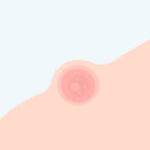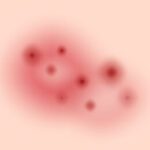SKIN PROBLEMS/
Urticaria
Understanding Urticaria: Causes, Prevention, And Effective Treatments
Urticaria can be classified as acute or chronic. Chronic urticaria is less common compared to acute urticaria and it is defined as urticaria of more than 6 weeks.
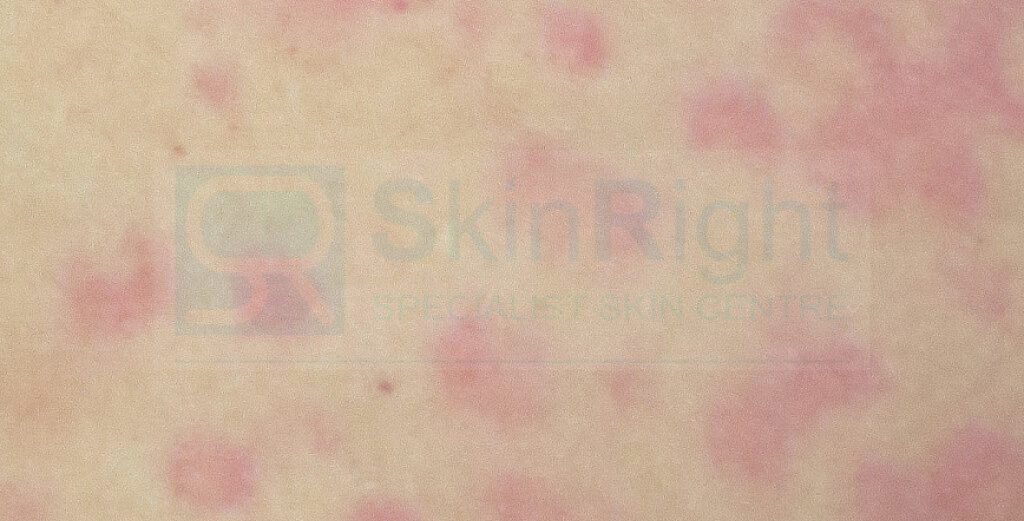
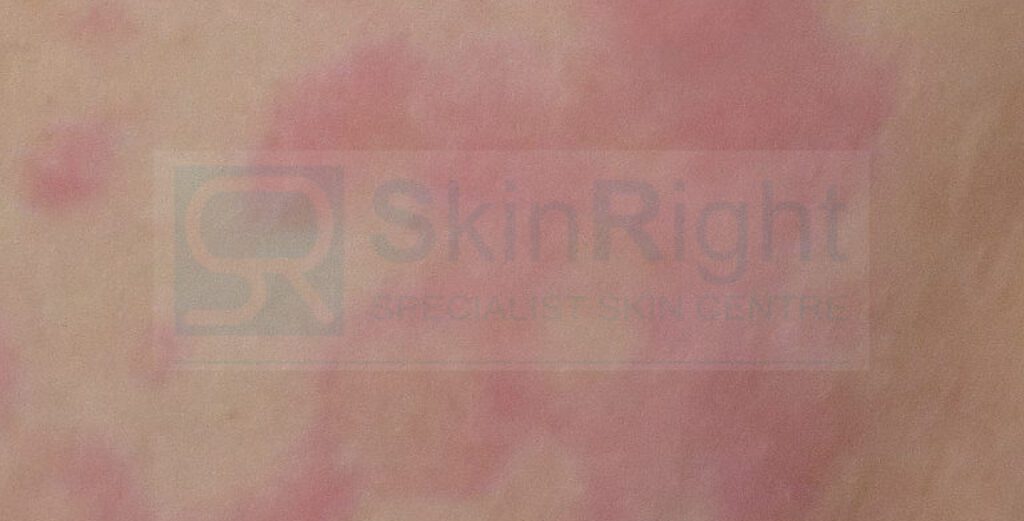
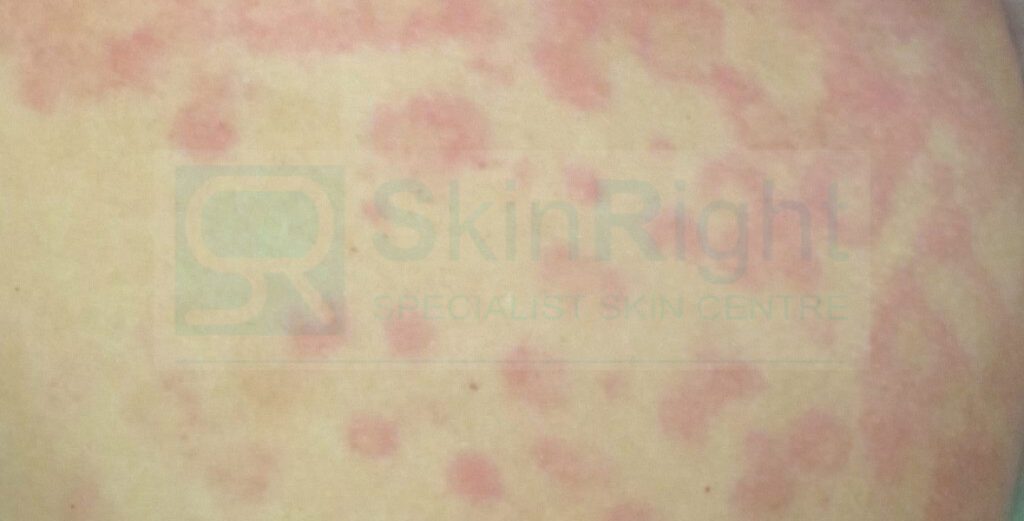
Identifying The Common Causes Of Urticaria And The Role Of Allergens
Urticaria, commonly referred to as hives, is a condition characterized by red, itchy welts on the skin. These welts can vary in size and appear anywhere on the body. Understanding the common causes of urticaria is essential for effective management and prevention. One of the primary causes of urticaria is contact with allergens, which can trigger the immune system to release histamine and other chemicals into the bloodstream, resulting in the symptoms associated with hives.
- Common allergens include:
- Certain foods (e.g., nuts, shellfish, eggs, some fruits)
- Medications (especially antibiotics like penicillin, aspirin, and non-steroidal anti-inflammatory drugs)
- Environmental factors:
- Pollen
- Insect stings
- Animal dander
- Latex
- Physical stimuli that can act as triggers for urticaria include:
- Heat
- Cold
- Sunlight
- Pressure
The role of allergens in urticaria is not limited to external sources, as underlying conditions such as autoimmune disorders and chronic infections can also influence the frequency and severity of outbreaks.
Identifying specific allergens is a crucial step in managing and preventing urticaria effectively.
Related Video
The Importance Of Allergy Testing In Diagnosing Urticaria
Allergy testing plays a crucial role in diagnosing urticaria, also known as hives, because it helps identify specific triggers that may be causing the condition. Urticaria is often a result of allergic reactions, but identifying the exact allergen can be challenging. By conducting allergy tests, healthcare professionals can narrow down potential allergens, such as certain foods, medications, or environmental factors, that may be responsible for triggering the hives.
Understanding Immunoglobulin E Ige: The Key To Decoding Allergic Reactions
Immunoglobulin E (IgE) plays a crucial role in understanding allergic reactions, acting as a key antibody in the body’s immune response to allergens. When a susceptible individual encounters a specific allergen, their immune system produces IgE antibodies tailored to that substance. These antibodies attach to mast cells and basophils, sensitizing the body to future exposures. Upon re-exposure to the same allergen, IgE triggers the release of chemicals like histamine, leading to symptoms such as hives, sneezing, or asthma.
Measuring IgE levels through blood tests helps identify sensitivities, offering insights into food and environmental triggers.
Related Video
Omalizumab for Urticaria: A Breakthrough Treatment for Chronic Hives
Omalizumab represents a significant advancement in treating chronic spontaneous urticaria, offering new hope for patients who don’t respond to traditional antihistamine treatments. This comprehensive guide explores this innovative biological treatment and its role in managing chronic hives.
Understanding Omalizumab
Omalizumab is a humanized monoclonal antibody that specifically targets immunoglobulin E (IgE). As a biological treatment, it reduces inflammatory mediator release from mast cells and basophils, effectively controlling chronic urticaria symptoms. The medication is administered through subcutaneous injections, with a standard dose of two 150-mg injections every 4 weeks.
Its mechanism of action involves:
- Binding to circulating IgE
- Preventing IgE attachment to cell receptors
- Reducing inflammatory mediator release
- Decreasing receptor expression on inflammatory cells
Safety Profile and Risks
While generally well-tolerated, patients should be aware of potential side effects:
- Headaches affect approximately 10% of patients
- Injection site reactions (swelling, redness, pain, itching)
- Rare risk of serious allergic reactions including anaphylaxis
Lifestyle Modifications To Manage Urticaria Symptoms
Managing urticaria effectively often involves integrating certain lifestyle modifications to help minimize the frequency and severity of symptoms. First, it is crucial to identify and avoid known triggers, which may include specific foods, medications, stress, or environmental factors. Keeping a diary to track outbreaks can help pinpoint these triggers over time. Stress management techniques, such as yoga, meditation, or deep-breathing exercises, can also play a significant role in reducing stress-induced flare-ups.
Additionally, wearing loose-fitting, soft clothing can prevent excessive friction and irritation on the skin, which might exacerbate symptoms. Maintaining a regular skincare routine that includes gentle cleansing and moisturizing can help protect and soothe sensitive skin. Ensuring a well-balanced diet rich in vitamins and antioxidants may support overall skin health and boost the immune system. Staying well-hydrated also aids in maintaining skin resilience.
It is advisable to avoid extreme temperatures, as both heat and cold can trigger hives in some individuals. By making these lifestyle adjustments, individuals can create a supportive environment that reduces the likelihood of urticaria episodes.
Hidden Content
Hidden content
Other skin concerns
Existing patient information
Please Contact Us for Password @ 26111006
如果你要將以下嘅內容隱藏,可以在Inner section的Advanced tab裏面的CSS ID欄位上填上 hiddenSection
Eczema Knowledge
Other skin concerns
Hidden Content
Hidden content

